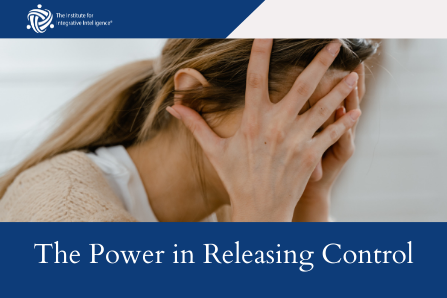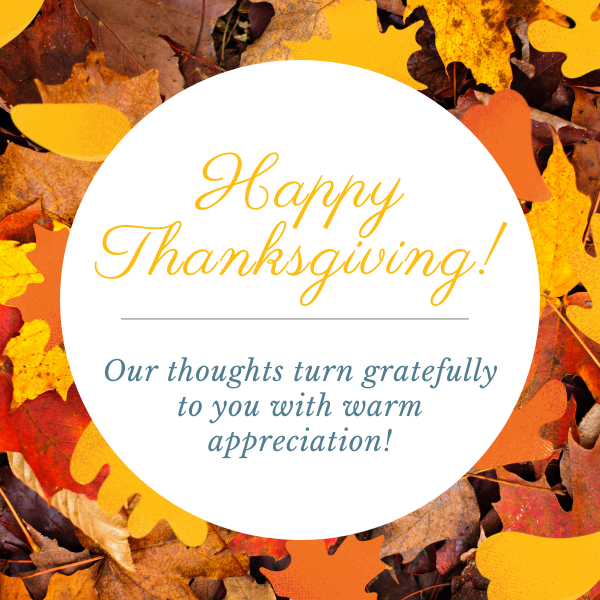|
We have some exciting updates to share with you! The Institute has added several very outstanding professionals to our team.
Lauren Stidham is our Admissions & Administrative magic worker. She also runs a very successful coaching business called Blueprint to Bloom. With her intuitive coaching skills and background in education, it was a perfect fit to invite her to join our team as an instructor. We are very thrilled to have her! You can find her here: www.blueprinttobloom.com Tamica Sears and Suzanne McFarlin have been hand-picked as lead trainers and supervisors for our newest graduate level program, the Leadership Coaching Specialization! We launched the pilot last year and are very excited to hold the next round in 2022. Both Tamica and Suzanne are a wealth of insights and wisdom in executive level best practices. You can find out more about each of them here: Leadership Coaching Specialization (LCS) Michael Tucker has joined the team as well! Michael is a knowledgeable and insightful Executive and Team Coach. He is a former Captain in the United States Air Force, has a Master’s degree in Human Relations from the University of Oklahoma, and a Postgraduate Certificate in Executive & Professional Coaching from UT-Dallas. We are excited that he will be instructing throughout the CPIC program! You can find out more about him here: www.tuckercoaching.net/about Carrie Doubts has been brought onboard as a second ICF trained PCC level assessor and Mentor Coach. Carrie is a warm-hearted mentor with a full-time coaching practice. We are very fortunate to have her join us! lifesnextchaptercoaching.com Karen Yeung has joined us to help with our outreach and social media resources. Karen is a delightful and highly skilled virtual assistant, and we are thrilled to have her! www.kaysocials.co You will see more about each of our outstanding new team members in the coming months! We will be featuring each them as we go. Happy Holiday Season! The Power in Releasing Control by: Laurel Elders Have you ever heard someone tell you, "Stop trying to control everything." Or, "That person is a complete control freak." Have you ever thought you were being controlled or manipulated by another? Have you ever felt out of control? Today, we are going to unpack the cost of control. The attempt to control is life draining. This article will help you connect with better strategies so that you can choose a life-enhancing strategy instead. First, what is control? Control is a noun and, according to Oxford Dictionary, is: "The power to influence or direct people behavior or the course of events." Control is not a human virtue which we will introduce later. Control is a strategy the egoic-self devises to stay safe. Control at its worst turns into manipulation which is the ego's desperate attempt to remain safe. First, it is best to understand that actual control is 1) impossible and 2) illusion based. While someone might be successful at manipulating others, there is always a cost involved. These include:
In essence, all of the beautiful virtues of life that leave us feeling safe and connected are pinched off by the machinations of the egoic-self. The good news? There is a better way. To dispel the costs of control, we must first understand the human psyche and how the ego attempts to run the show. There is you. Then there is fear-based you. Fear-based you splinters off in an attempt to remain emotionally safe. This is how the egoic-self forms. The ego is based on fear and the false premise that "I am separate." In truth, while we may be physically separate from others and feel separation, we are not separate at all. We are connected. Spiritual teachers have been teaching this fact for centuries. Quantum physicists have backed this up by discovering that everything is energy and energy is interconnected. This is the reason we say, "love hurts." When in reality, it is not love that hurts, but the absence of love that hurts. If we were not connected, the absence of love would bear no cost. What is the alternative to control? What is on the other side? Connection. Connection is the bridge from the vice of control to the virtue of connection. How do we navigate from control to connection? After all, if it were evident, we would all be choosing something with benefits and dropping the behaviors with costs, right? Let's break down the anatomy of what happens.
This becomes a story that includes a full-blown analysis of who, what, when, where, why, how, good, bad, right, wrong. The mind begins to spin and delivers a mess of false messengers. So naturally, we can see why the ego devised control as a strategy to remedy the chaos it produces. The problem with egoic evaluations and the stories generated? They are riddled with illusions—false evidence appearing real. The body reacts emotionally to the ego's storyline, and then our evaluations feel very real. Thus, confirming that its assessment is indeed justified. And... this process solves nothing and keeps us in reactivity. Masterful people do not live through stories. They lead life through vision. They lead life connected to themselves, the possibilities embedded within, and are therefore connected to others. Let's break down the anatomy of what happens.
When we stay stuck in fear, it turns from asset to liability. It is just the messenger, never the truth. The truth of what happened does not define the truth of what is possible - unless we remain in fear. The masterful person responds by sifting through all of the virtues embedded as possibilities within them and answers the question. "In this situation, I'm choosing to be the possibility of …." and they fill in the blanks. They lead by vision. They lead by virtue not by vice. Virtues are within us all waiting to be tapped into. Therein lies your true potential. To recap: Fear fragments the mind leaving us in a state of disintegration. Fear fragments us off from possibility and takes us to the land of probability due to reactiveness that has costs attached. What is the good news? Illusions only last as long as we allow them to. Once they are brought to the surface of our awareness, they disappear. We can't fix what we don't see. As we see, so will we be. To this end, I invite you to step out of the story and into the power of your vision. This is living integrated through wholeness. The next time a fear occurs, ask yourself:
************* FOLLOW US AT: Facebook: https://www.facebook.com/IntegrativeIntelligence Instagram: https://www.instagram.com/integrativeIntelligence LEARN MORE ABOUT BECOMING A Certified Professional Coach This Thanksgiving, we want to share our gratitude and appreciation with you. Without you, we would not be where we are today, and we're so grateful for all of your support and referrals throughout the year. Thank you for being someone who is part of the positive impact this world needs. We hope you have a joyous holiday! I hope you had an amazing weekend! This week, we are continuing our focus on gratitude and abundance. Earlier this month, we explored the neurology of gratitude. Today, we are sharing some easy and fruitful ways to take action with gratitude by expressing it. I remember being in my 20s and feeling too shy to share with a teacher of mine how much she had positively impacted my life. Years later, this teacher passed away, and I live with the regret of not saying anything to her and expressing how I felt. I invite you to take action on your gratitude! Gratitude is like love. When it is shared, its value does not divide... it doubles. Allow gratitude to open the door to more opportunities and relationships in your life. 10 Ways to Express Gratitude by: PsychCentral "Philosophers and poets have long praised gratitude as one of the most desirable attitudes. Surely, each of us has much to be thankful for. Why not express our gratitude? It costs us nothing, yet yields countless benefits. Looking for ways to show and acknowledge gratitude? Here are 10 to try that are simple, quick and easy. 1. Say a kind word The quickest, simplest and easiest way to demonstrate gratitude is to say thanks to another. If you don’t have a specific item to express thanks for, saying a few kind words is just as effective. Kind words earnestly spoken are like healing balm to a troubled soul. They work equally well for those who are stressed, feel unappreciated, are lonely, ill, tired or just a bit anxious or depressed. Besides, don’t you feel a little better when someone has a kind thing to say to you?" Click to read more! ************* FOLLOW US AT: Facebook: https://www.facebook.com/IntegrativeIntelligence Instagram: https://www.instagram.com/integrativeIntelligence LEARN MORE ABOUT BECOMING A Certified Professional Coach When the going gets tough, we have a choice. Stay in the tough or pivot. Gratitude, which is the essence of positive focus, is a light yet powerful way to pivot.
If you are upset with someone at work, can you find five things you like about them? If your teenager is driving you batty, can you reflect on what you do love about who they are? Shifting our perspective, shifts the experience. Today's resource is a light and friendly reminder to increase our gratitude and expand into more positive and enriching experiences. I am grateful that you are reading this. To me, it shows you are a person who cares. Thank you for being here! How to Practice Gratitude by: Mindful Magazine "Practicing gratitude can be a game-changer: it has far reaching effects, from improving our mental health to boosting our relationships with others. Living your life with gratitude helps you notice the little wins—like the bus showing up right on time, a stranger holding the door for you, or the sun shining through your window when you wake up in the morning. Each of these small moments strings together to create a web of well-being that, over time, strengthens your ability to notice the good. Building your capacity for gratitude isn’t difficult. It just takes practice. The more you can bring your attention to that which you feel grateful for, the more you’ll notice to feel grateful for!
Click here to read more! ************* FOLLOW US AT: Facebook: https://www.facebook.com/IntegrativeIntelligence Instagram: https://www.instagram.com/integrativeIntelligence LEARN MORE ABOUT BECOMING A Certified Professional Coach Happy November! This month, we are focusing on gratitude and abundance. When life feels hard, it can be easy to forget that blessings and virtues are equally present.
We are kicking off this month's focus by taking a look at some research on how the brain and gratitude are connected. How Gratitude Changes You and Your Brain By: Joshua Brown & Joel Wong "With the rise of managed health care, which emphasizes cost-efficiency and brevity, mental health professionals have had to confront this burning question: How can they help clients derive the greatest possible benefit from treatment in the shortest amount of time? Recent evidence suggests that a promising approach is to complement psychological counseling with additional activities that are not too taxing for clients but yield high results. In our own research, we have zeroed in on one such activity: the practice of gratitude. Indeed, many studies over the past decade have found that people who consciously count their blessings tend to be happier and less depressed. The problem is that most research studies on gratitude have been conducted with well-functioning people. Is gratitude beneficial for people who struggle with mental health concerns? And, if so, how? We set out to address these questions in a recent research study involving nearly 300 adults, mostly college students who were seeking mental health counseling at a university. We recruited these participants just before they began their first session of counseling, and, on average, they reported clinically low levels of mental health at the time. The majority of people seeking counseling services at this university in general struggled with issues related to depression and anxiety. We randomly assigned our study participants into three groups. Although all three groups received counseling services, the first group was also instructed to write one letter of gratitude to another person each week for three weeks, whereas the second group was asked to write about their deepest thoughts and feelings about negative experiences. The third group did not do any writing activity. What did we find?" Click Here to Read More! ************* FOLLOW US AT: Facebook: https://www.facebook.com/IntegrativeIntelligence Instagram: https://www.instagram.com/integrativeIntelligence LEARN MORE ABOUT BECOMING A Certified Professional Coach |
Archives
June 2022
Categories
All
|






 RSS Feed
RSS Feed